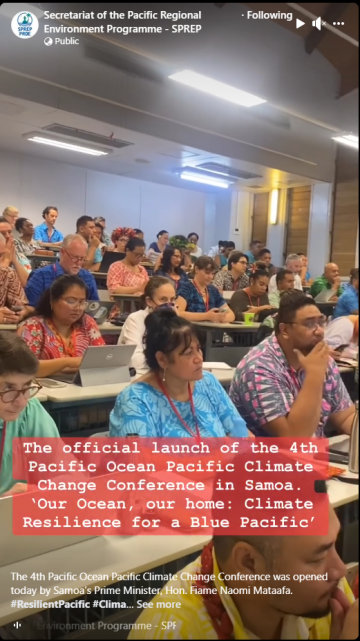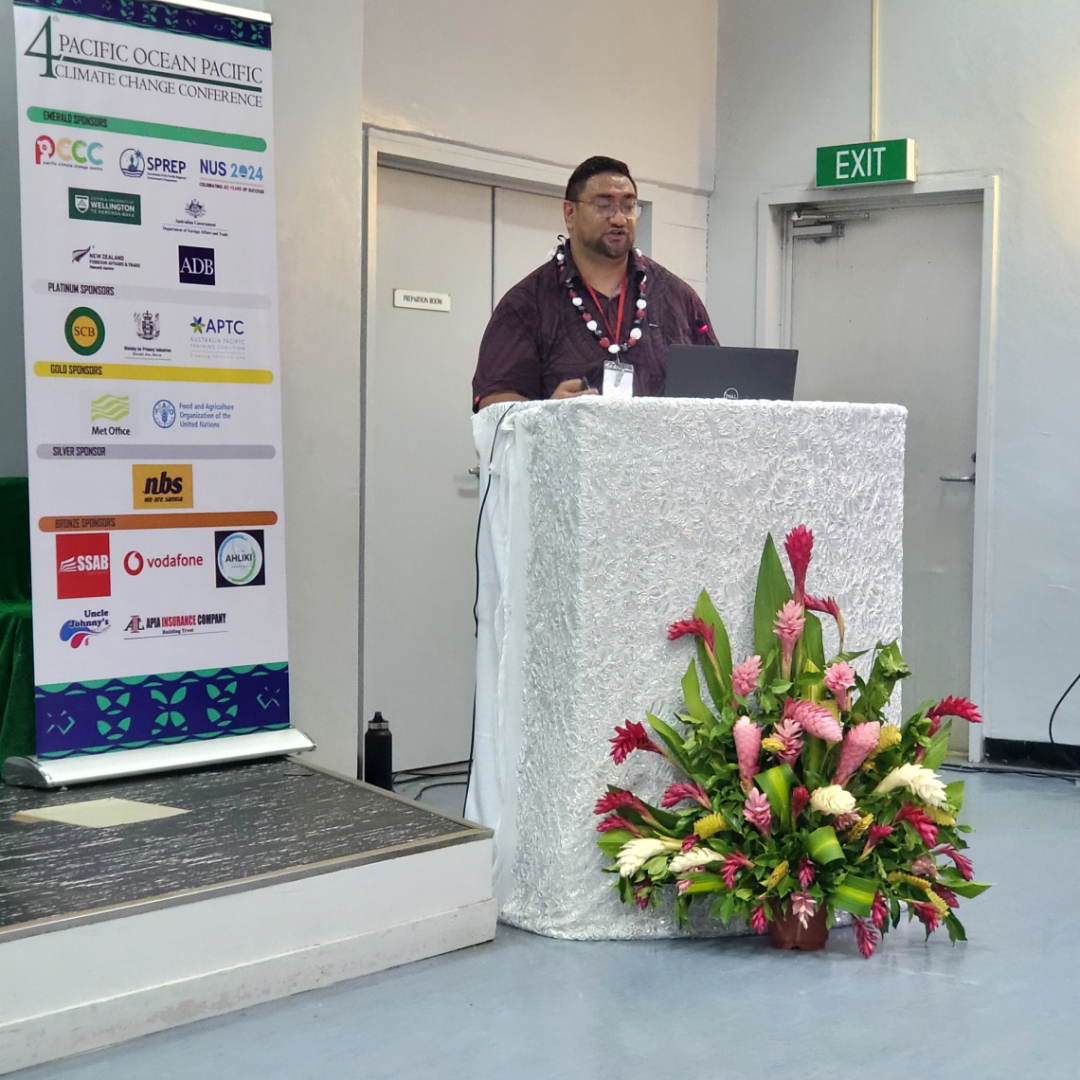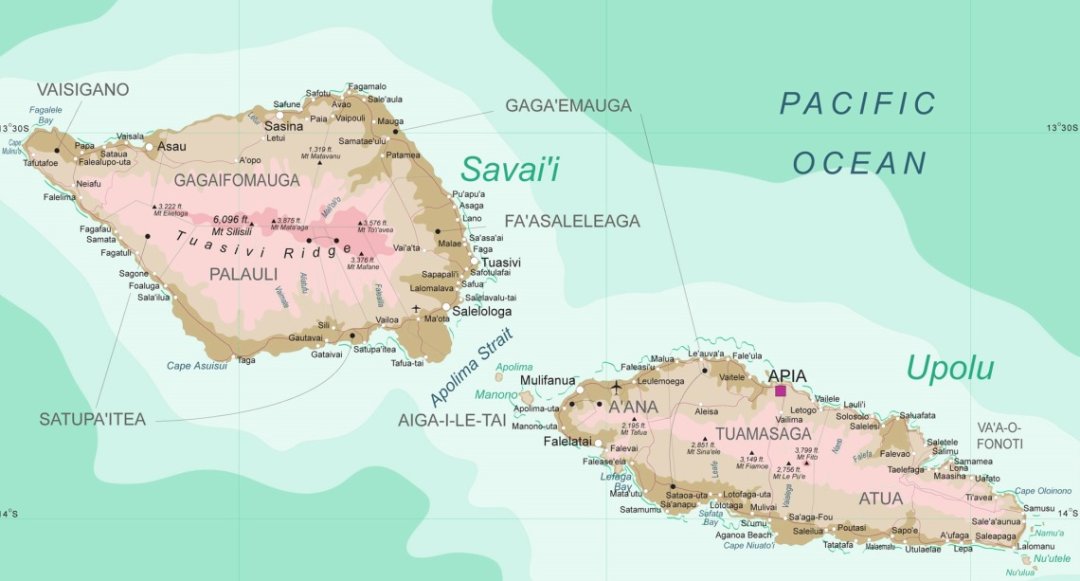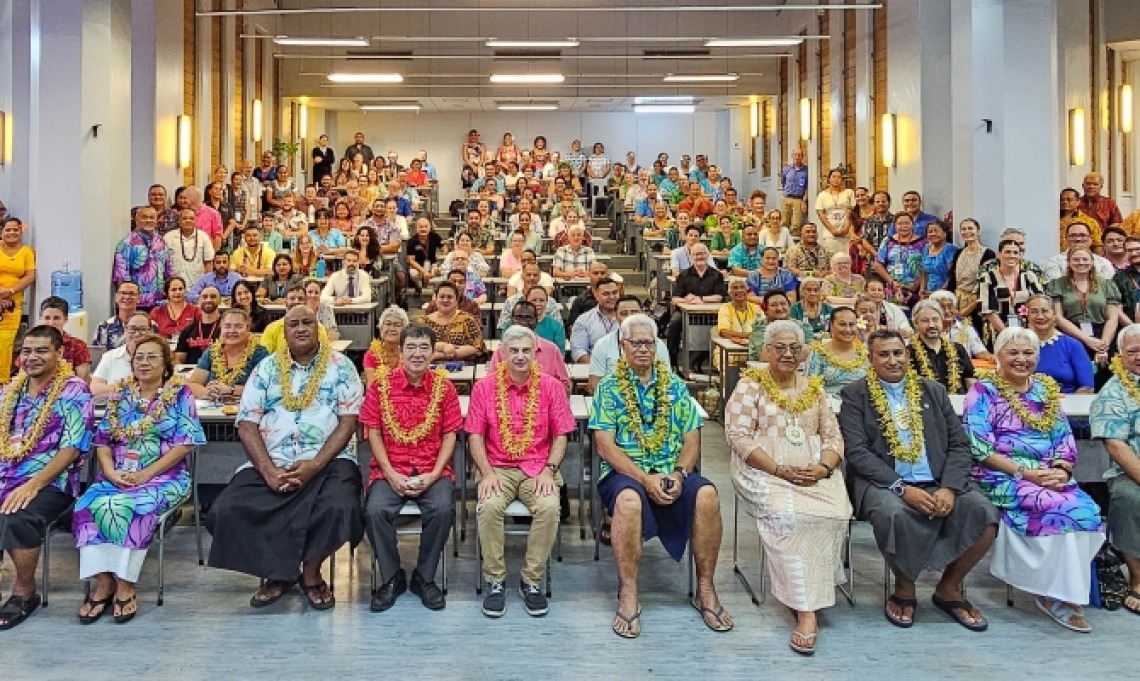On 20-24 May 2024, Professor El-Shadan Tautolo, Associate Professor Alayne Mikahere-Hall, and Associate Professor Ailsa Holloway attended the 4th Pacific Ocean, Pacific Climate Change Conference (POPCCC) in Apia, Samoa. The conference was co-hosted by the Secretariat of the Pacific Regional Environment Programme (SPREP), the National University of Samoa (NUS) and the Victoria University of Wellington (NZ). The conference brought together a diverse group of 100-150 participants from various organizations, all gathering to tackle the critical issue of climate change in the Pacific region.

AUT’s conference participation sought to achieve several objectives. These included:
- Delivering a formal presentation on the Climate Adaptation Research Programme (CARP)
- Building an understanding of existing research and capacity development activities related to climate change adaptation in the region, including of key stakeholders.
- Establishing and reinforcing enabling relationships with key stakeholder groups and individuals.
- Assessing gaps in current activities and research.
On Wednesday, 22 May, Professor El-Shadan Tautolo presented the CARP initiative in the afternoon session. This was the only presentation that focused on role of the region’s universities in advancing CCA. Subsequently, both the Tongan Prime Minister and Vice-Chancellor of the Solomon Islands National University stressed this as a priority.

Following the conference, Professor El-Shadan Tautolo and Associate Professor Alayne Mikahere-Hall delved deeper into the region by participating in a field trip focused on a sustainable farming initiative in Savai’i. During the trip, they learned about the impacts of accelerating sea level rise for village communities. Sea level rise poses greater risks to these communities during tropical cyclones. While an adaptation strategy for communities along the coastal region are to move inland, doing so could change the livelihoods of communities and affect how land is distributed. Movement inland may also take some communities away from their traditional and ancestral lands.
One of the more concerning observations raised by these local communities, as well as by Professor El-Shadan Tautolo and Associate Professor Alayne Mikahere-Hall, is that oftentimes scientists collect data and leave. Data and findings from research are not always shared back to the communities in which the research was conducted.
Thus, as CARP reflects on our research agenda and goals over the next few years, it is critical to recognize our ethical obligation to work with local communities and colleagues in a respectful way. Especially in indigenous knowledge systems, it is important to honour these systems and ensure that communities can access and have autonomy over any data that is shared and presented to external audiences. It’s not just about collecting data; it’s about fostering meaningful partnerships that empower communities to navigate the challenges of climate change.
Stay tuned for more updates on how our CARP regional team continues to make strides in climate adaptation research in the region!

Large detailed map of Samoa
https://ontheworldmap.com/samoa/large-detailed-map-of-samoa.jpg


